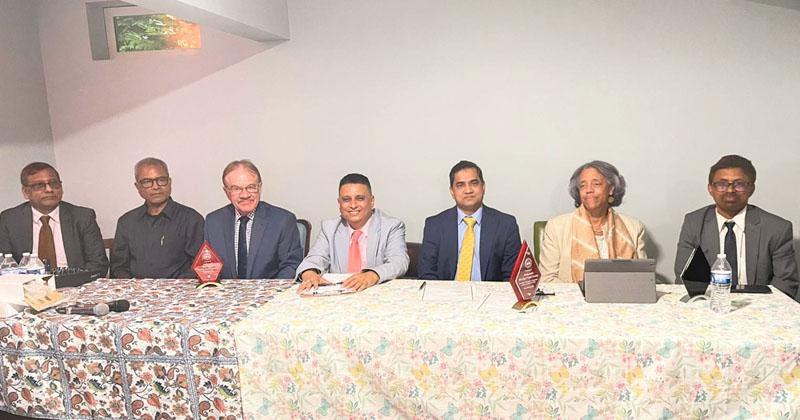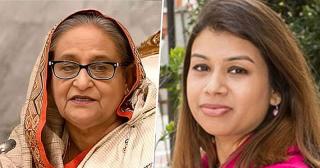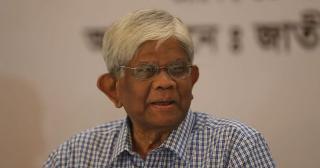
Speakers including two former American envoys at a discussion on Bangladesh on Saturday said that the "fall of the dictator Sheikh Hasina" on August 5, 2024 not only signified a decisive shift in politics but also heralded a unique and transformative chapter in the nation's revolutionary history.
The people and political parties should unite in supporting Muhammad Yunus to facilitate a democratic transition and ensure fair elections, they said.
The discussion titled “The Future Democracy: The Rule of Interim Government in Bangladesh” was organised by the US-Bangladesh Advocacy Council in Baltimore, a city in the state of Maryland, USA.
Bangladesh Ambassador to Mexico Mushfiqul Fazal Ansarey was present as the chief guest at the event.
They also emphasized that the government led by Dr. Yunus is actively working to steer the country toward democracy after overcoming the current crisis.
Lucky to have Yunus: Dan Mozena
Former US Ambassador to Bangladesh, Dan Mozena, expressed admiration for the chief adviser, stating that the people of Bangladesh are truly fortunate to have such an honest, wise, and capable leader.
He said that many challenges remain in Bangladesh, but reform processes are underway to address the crisis. The law and order situation has stabilized, and the country's economy is showing signs of development.
Ambassador Mozena emphasized, "I do not believe it is reasonable for Bangladesh’s political parties to revert to their old mistakes. The National Consensus Commission must train them in ethical behavior."
He further said that the people of Bangladesh and political parties should cooperate with the interim government to build an acceptable political process without exerting undue pressure. Patience is essential. "I believe the people of Bangladesh will accept nothing less than a genuine revolution and its successful realization."
Ambassador Mozena added, "The journey of building Bangladesh’s political landscape, implementing reforms, and moving toward democracy is challenging. But Yunus is the right person to guide Bangladesh along that path."
He reflected, "I observed Sheikh Hasina’s rule for several years, but I never imagined the government would fall so easily. The young people demonstrated their power in July, and we will never forget August 5."
He described that event as the end of 15 years of dictatorship, stating, "Through this escape, Bangladesh experienced a revolution. It was a different kind of revolution — one that led not to disaster, but to a path of stable democracy. When I recall August 5 and see the scene of Hasina fleeing in a helicopter, I consider it a remarkable event in Bangladesh’s history."
Bangladesh's greatest asset is its people: Bernicat
Another former US Ambassador to Bangladesh, Marcia Stephens Bloom Bernicat, said that Bangladesh's greatest asset is its people.
She said that the youth of the country are remarkably dynamic.
Reflecting on her tenure, she recalled witnessing in 2018 how young Bangladeshis took to the streets to protest the tragic death of students in a bus accident. She praised their disciplined approach, noting that they did not resort to violence or destruction. Instead, they organized themselves efficiently—managing traffic, facilitating the movement of vehicles in an orderly manner, checking licenses—including those of ministers and government officials—and assisting rickshaws and buses to move in designated lanes.
Bernicat described their actions as truly extraordinary, emphasizing that the youth demonstrated a strong sense of responsibility and discipline. She expressed admiration for the indomitable spirit of Bangladesh’s young people, calling it a shining example of their resilience and commitment.
The former ambassador said, "If you Google Bangladesh, you will see that it is a country of opportunity. Surrounded by hundreds of rivers, Bangladesh has made commendable progress in developing its agriculture and forestry sectors in collaboration with its partners. The country is among the world's leading producers of rice and jute."
She further added that immigrants are vital to the United States. They contribute significantly to the country's development and success.
Former President George H.W. Bush once said that immigrants not only shape the history of a nation but also play a crucial role in its future progress. "I hope that immigrants will similarly contribute to the democratization and development of Bangladesh, just as they have helped shape the United States," she added.
Mushfiqul Fazal Ansarey said, "For years, the deposed dictator Sheikh Hasina clung to power through torture, vote rigging, and brutal repression."
He added that many innocent people—thousands of opposition activists, journalists, and ordinary citizens—have been killed for their fundamental demands. The repression of young students in July was especially tragic; many were shot dead while protesting for their rights. Their sacrifices should never be forgotten. They exemplify the moral compass of our time, he added.
Ambassador Mushfiqur expressed hope, saying, "We believe Bangladesh will transition peacefully and democratically under the leadership of Nobel Peace Prize laureate Dr. Muhammad Yunus. Under his guidance, the constitutional framework, institutional democracy, and voting rights for all citizens will be established. Currently, the interim government led by Dr. Yunus is working to steer the country back onto the right path."
He also mentioned that 11 independent commissions are actively working with specific action plans.
He further said that the interim government is striving to build consensus with political parties. Recently, a productive meeting took place in London between Chief Adviser Dr. Yunus and BNP acting chairman Tarique Rahman.
This meeting marks a significant step toward organizing free and fair elections in Bangladesh.
In addition, the government is preparing an electoral roadmap to hold an acceptable election domestically and internationally by February, he said.
He emphasized, "This election date is not just a calendar milestone but a commitment to the people. Their votes will no longer be stolen, their voices will be heard, and Bangladesh’s future will be built on truth, transparency, and participation—not fear, lies, or oppression."
The event was chaired by poet, writer, and organizer Shamsuddin Mahmud, with Professor Jamal Uddin, Dean of Coppin State University, delivering the welcome speech.
The program was moderated by Major (Retd) Safayat Ahmed and Raisha Farin.














